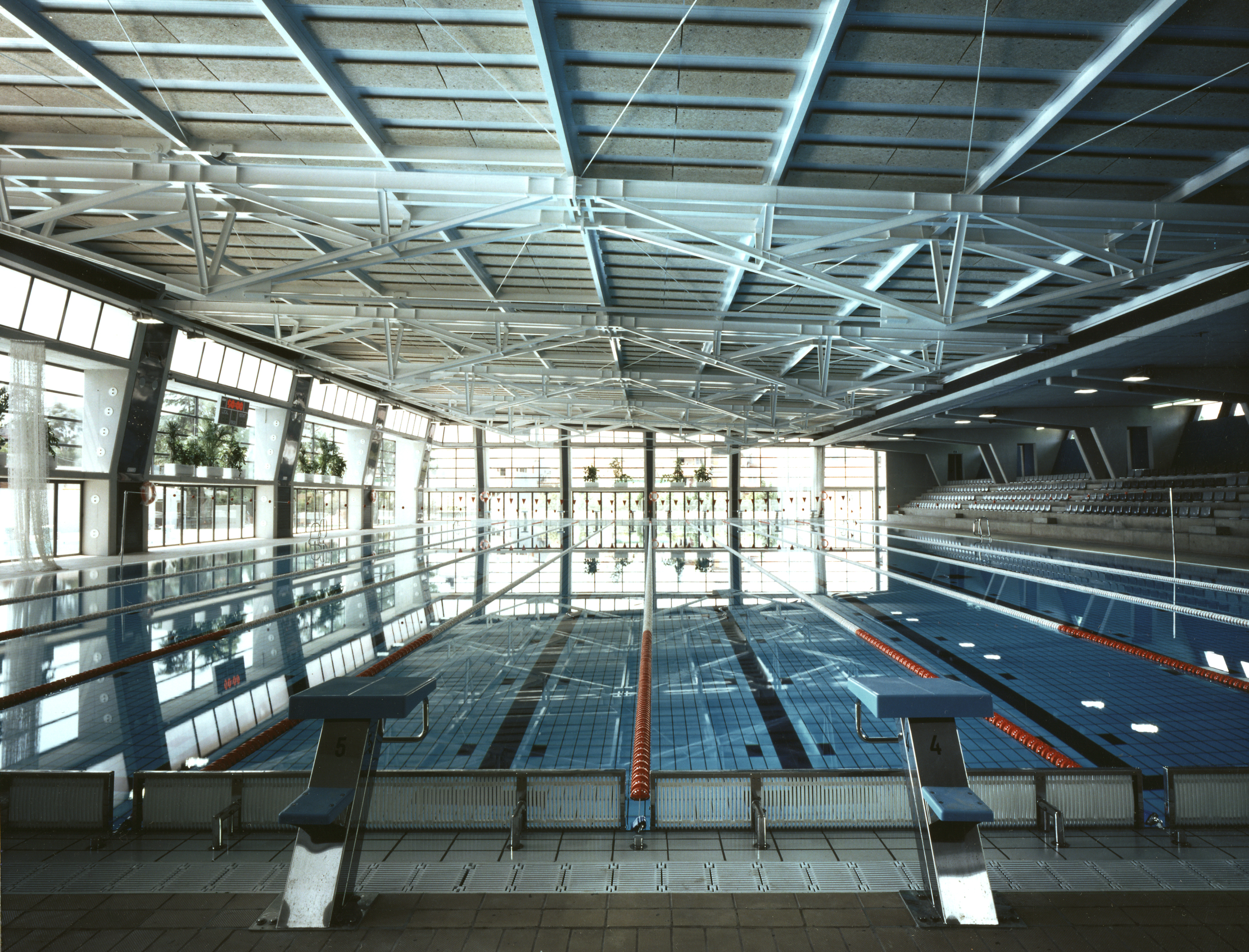Aquatics and swimming pool professionals representing several disciplines gathered to discuss the issue of indoor air quality at facilities in the U.S.
At the World Aquatic Health Conference, a panel discussed the issue. The group included Kevin Post, principal and director of aquatic operations at aquatics designer and consulting firm Councilman-Hunsaker, in St. Louis; Paul Stewart, director of sales, marketing and service for HVAC firm Desert-Aire, in Germantown, Wis; Jason Shallock, director of construction for contractor Anderson Poolworks in Wilsonville, Ore.; Doug Whitaker, principal of aquatic designer Water Technology Inc.; in Beaver Dam, Wisc.; Don Baker, CEO of builder and supplier Paddock Pool Group in Rock Hill, S.C.; and Mark Weber, a contractor and Athlete’s Vice President of USA Swimming.
The discussion was followed by several informational sessions pertaining to air and water quality in indoor facilities.
Comparing American practices to those in European countries, the panelists and attendees discussed how all segments that make contact with an aquatics facility – including designers and builders, operators, maintenance technicians and swimmers – must work together to walk the perfect balance needed for optimum air quality.
Panelists discussed reluctance on the part of budget-conscious facility owners to pay for the correct air-handing and chemical control systems. But even more than budget, the culture of swimming in the U.S. poses the biggest challenge to maintaining the cleanest water and minimizing the chlorine byproducts that can cause odor or respiratory issues, the professionals agreed.
For instance, while designers can follow the lead of other countries by placing showers so they must be used before entering the pool area, the panelists said, this often is met with resistance. The group identified two primary obstacles to doing this: users who find showering to be inconvenient, and facility owners who don’t want to pay for shower areas or don’t want to put off clients. At least one swim coach said competition organizers and coaches would never agree to make swimmers shower before a meet, deeming it impractical to force perhaps hundreds of swimmers to shower.
Preventing in-pool urination comprised the second cultural challenge, among both recreational and competitive swimmers, the latter of whose coaches often don’t want their charges to leave the water for restroom breaks. For this reason, Baker, of Paddock Pool Group, began a campaign to collect pledges to discourage in-pool urination and post provided posters to do so.
And those maintaining the indoor facilities must take care even when choosing products to clean the deck, avoiding ammonia whose byproducts would mix in the air with chlorine.
The group pledged to continue exploring the issue further and find ways to bring the various segments of the industry together on this issue.



